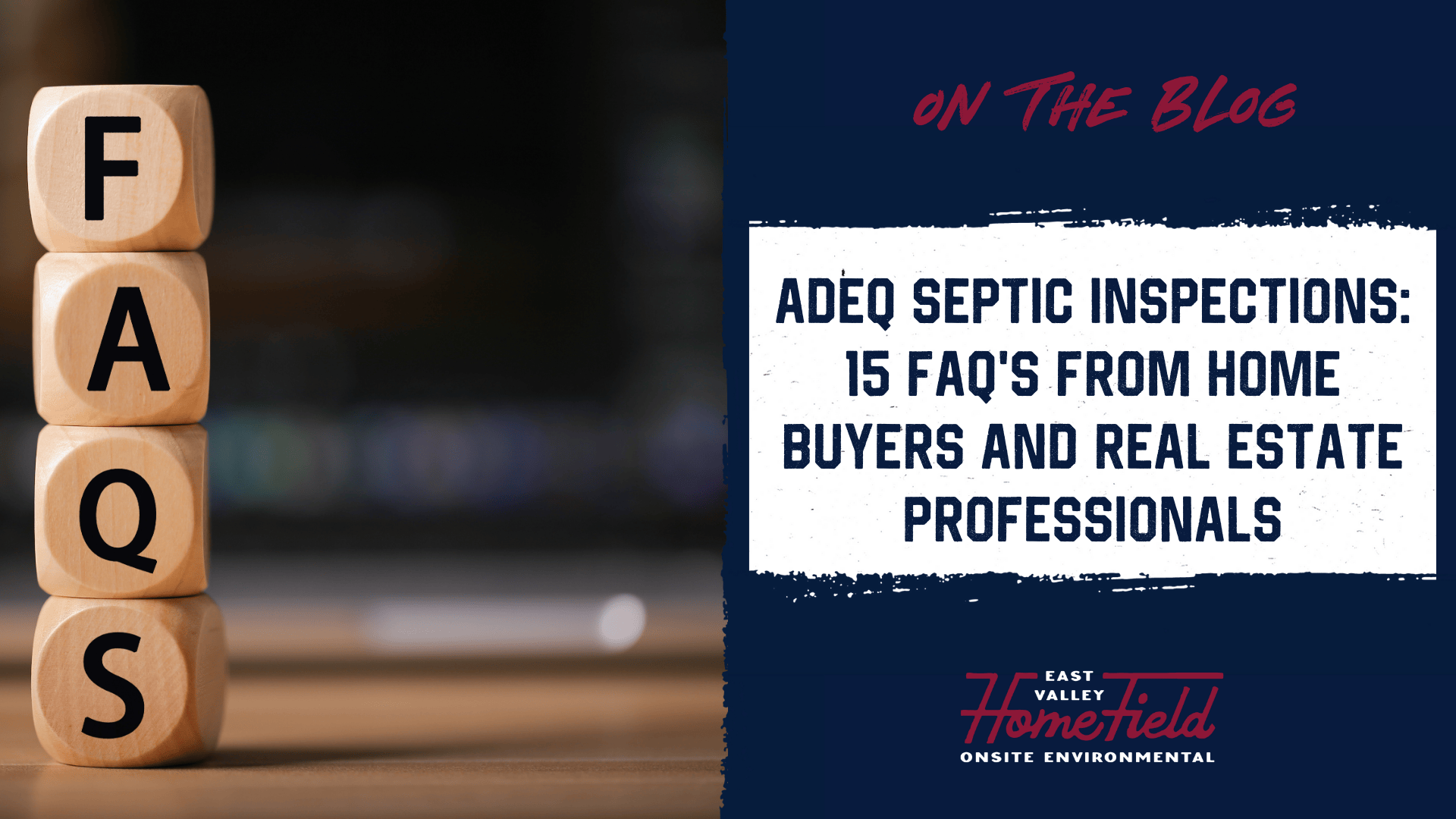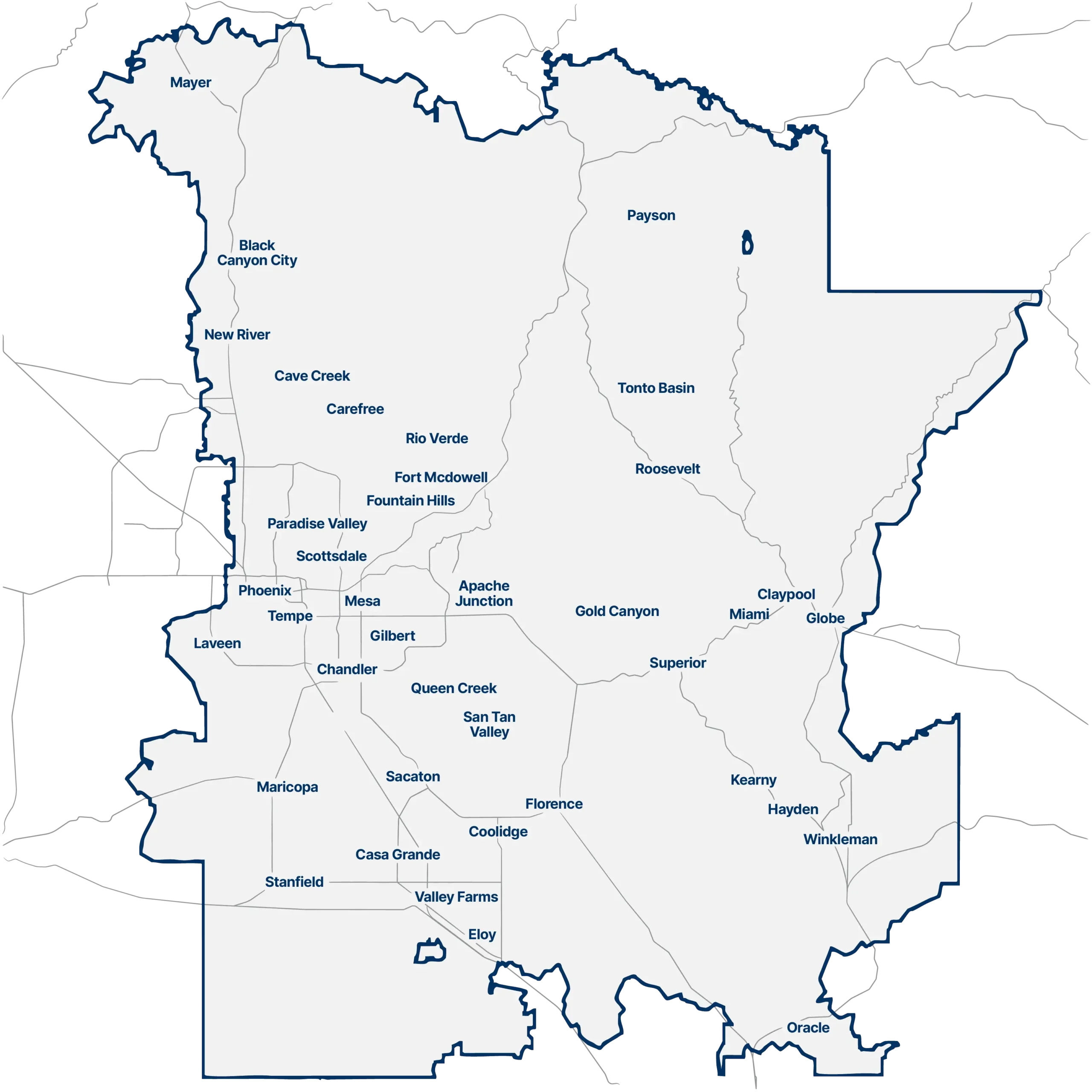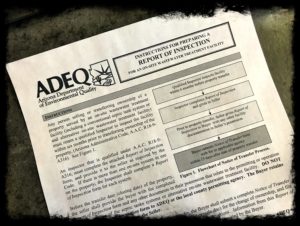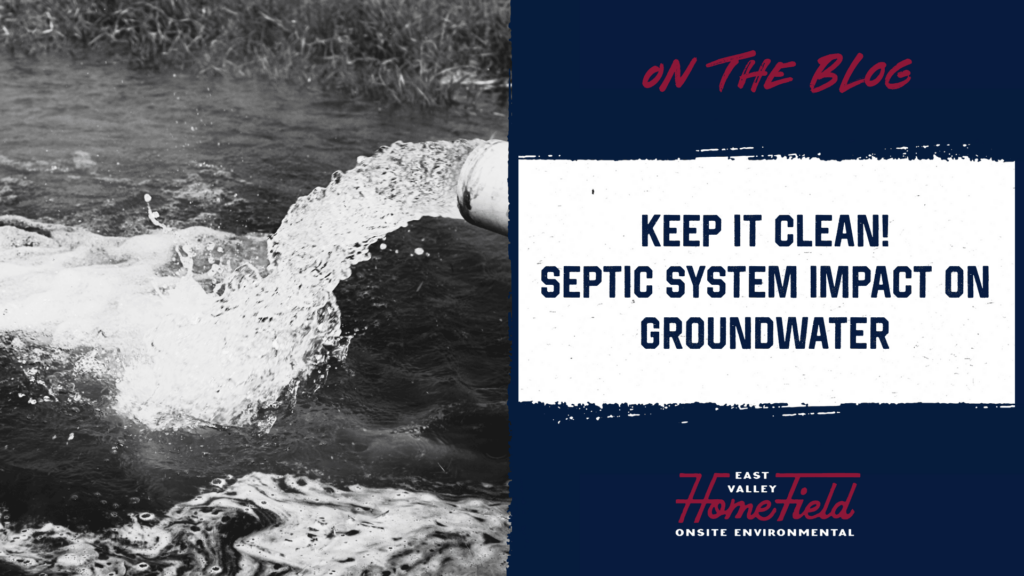
ADEQ Septic Inspections:15 FAQ’S
August 21, 2025
If you’re in the process of buying or selling a property with a septic system in Arizona, it’s essential to be familiar with the ADEQ (Arizona Department of Environmental Quality) Septic Inspections. These inspections play a crucial role in ensuring the proper functioning of septic systems and safeguarding both property and public health.
At HomeField Onsite Environmental, we understand the importance of these inspections and the questions that often arise from real estate agents and homebuyers. Below, we’re answering the most common questions to help guide you through the process.
1. What is an ADEQ Septic Inspection? Is this necessary?
An ADEQ Septic Inspection is a thorough examination of the septic system on a property to ensure compliance with environmental and health regulations. A property with a septic system must undergo this requirement when sold or transferred to a new owner.
2. How long does an ADEQ Septic Inspection typically take?
Typically, the process takes about 1 to 2 hours. Our skilled team will thoroughly evaluate your septic system to ensure it meets all regulatory standards. We’re here to make it as smooth and hassle-free as possible so you can get back to what matters most.
3. What is the cost of an ADEQ Septic Inspection?
The cost of an ADEQ Septic Inspection can vary, and it’s usually the responsibility of the home seller. Prices depend on factors such as the size of the system and the address of the home. When you choose HomeField Onsite Environmental, we quote you a flat-rate price over the phone, via text, or through email/chat on our website. This rate covers everything needed for a thorough inspection: labor, pumping, the ADEQ Report of Inspection, and step-by-step photos.
4. Who is responsible for scheduling and paying for the ADEQ Septic Inspection, the buyer or the seller?
The ADEQ guidelines state that the seller must schedule and cover the cost. It is a vital step in the due diligence process, helping buyers make informed decisions about their potential investment.
5. When should you schedule or complete the ADEQ inspection?
We highly recommend completing this inspection soon after listing the home. Don’t wait for a buyer. This way, you’ll know the septic system works well and can provide a functional report with no issues. This reassures buyers, especially those new to septic systems.
Many septic issues aren’t visible from inside the house or above the tank. To identify problems like roots, excessive sludge, or damaged baffles, we need to open and examine the tank. This includes tank corrosion, cracks, and failed disposal fields.
Extreme damage may require tank or disposal replacement. This needs county permits, which can take up to 30 days. We often see home sales fall through due to these issues. Early inspection helps avoid this, especially for homes over 20 years old.
The ADEQ Inspection Report is valid for 6 months. Homes in Arizona often sell faster. If your report expires, call us and we’ll help you.
6. Are there any specific qualifications or certifications required for a septic inspector to conduct the ADEQ Septic Inspection?
Yes, ADEQ-approved septic inspectors must meet specific qualifications and certifications. At HomeField Onsite Environmental, every member of our field team is well-trained, licensed, and certified through NAWT, each with their own Inspector License Number. This is crucial.
Unlike most companies that only send the owner to training and then sign off on all reports, HomeField ensures that every field technician undergoes rigorous training and field instruction to conduct thorough ADEQ Septic Inspections the HomeField way.
7. What are the potential consequences if the septic system fails the ADEQ Inspection?
If the ADEQ Inspection shows the septic system as not functional or fails, you must make necessary repairs or upgrades to bring the system into compliance. Depending on negotiations, this may lead to additional costs for either the buyer or seller.
Based on the AZ Wastewater Addendum, if the system is marked functional with concerns, the buyer and seller can negotiate the necessary repair work. If the system is marked not functional, the seller must either repair or replace it at no more than 1 percent of the home’s purchase price, or the buyer can cancel the contract.
Homeowners often ask if they can still sell with a non-functional ADEQ inspection. The Notice of Transfer can be filed, but lenders won’t approve financing without a working system.. For investment properties or cash sales, the new owner assumes responsibility for fixing the septic system issues.
8. Can the results of a recent ADEQ Septic Inspection be used for multiple sales transactions on a property if it is within 6 months?
ADEQ Septic Inspections include information about the current homeowner of the property, and each sales transaction needs to have its own report. If it’s within 6 months, you likely won’t need another pump, so the inspection price will be much lower.
9. What happens if a property with a septic system does not pass the ADEQ Inspection before closing?
If the septic system does not pass the ADEQ Inspection before closing, the sale may be delayed until the necessary repairs or upgrades are completed.
10. Can necessary repairs or replacement issues, identified through the ADEQ Inspection, be completed after the close of the home sale?
Yes. We often have escrow hold-back money for the proposed estimate that was presented by our company or another company, so repairs can be completed once escrow closes. Once completed and signed off on, the remaining money will be released to the seller. Escrow companies do require proper documentation to release the money, so be sure to complete the work and get the final sign-off to ensure the release of funds.
11. What is the ADEQ “Notice of Transfer”?
The Notice of Transfer updates ADEQ with the new homeowner’s information. This process keeps your septic system registration current and records the inspection history accurately. HomeField submits this electronically once the inspection is complete and the sale closes.
12. Does the septic system need to be pumped during inspection?
In almost every case, yes. During inspection, pumping the tank allows a full evaluation of the baffles, water level, and inside condition. Exceptions to pumping are extremely rare.
13. What is included in the inspection report?
The report includes a full evaluation of the system, a written summary of findings, photographs of the system components, and the official ADEQ documentation stating whether the system is functional, functional with concerns, or not functional.
14. What’s the biggest reason a system fails inspection?
The most common reasons include failed disposal fields, tree root intrusion, tank corrosion, and broken or missing components like baffles or lids. Lack of maintenance or system overuse usually causes these issues.
15. How can I avoid issues and pass inspection?
Pump your tank every 2 to 3 years
Don’t drive or park over any part of the system
Don’t plant trees or shrubs near the tank or field
Flush only pee, poo, and toilet paper
Get a routine inspection before listing your home
At HomeField Onsite Environmental, we take pride in making the ADEQ septic inspection process clear and stress-free. If you’re preparing to sell or need help understanding your system’s condition, we’re here to walk you through it from start to finish.
Heidi
Heidi is the marketing and business development powerhouse at HomeField Onsite Environmental. She’s all about bringing the onsite wastewater world to life with knowledge, humor, and straight-up valuable insights—helping customers make the best decisions for their systems!
Sign Up For Our Newsletter

OUR SERVICE AREA
WE LOVE THE EAST VALLEY
We make the East Valley our home base, and proudly serve the cities and areas on this side of town, including:



